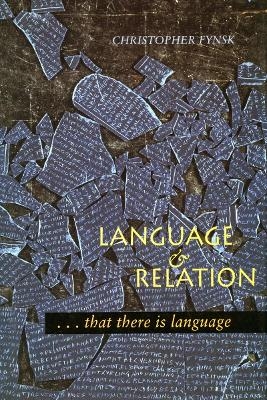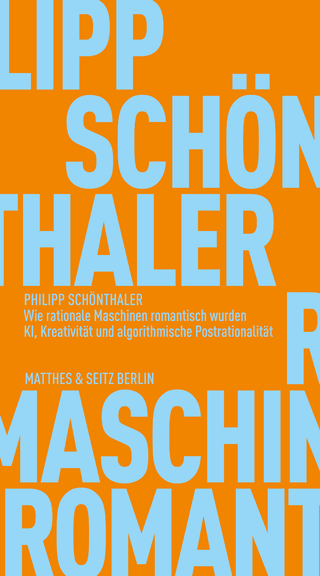
Language and Relation
. . . that there is language
Seiten
1996
Stanford University Press (Verlag)
978-0-8047-2713-6 (ISBN)
Stanford University Press (Verlag)
978-0-8047-2713-6 (ISBN)
This reassessment of theories of language in modern European philosophy contains close readings of meditations on language by Martin Heidegger, Luce Irigaray, Paul Celan, Walter Benjamin, and Maurice Blanchot.
The most recent version of the “linguistic turn,” the revolution in language theory shaped by Saussure’s structural linguistics and realized in a sweeping revision of investigations throughout the humanities and social sciences, has rushed past the most basic “fact”: that there is language. What has been lost? Almost everything of what Heidegger tried to approach under the name of “ontology” until the word proved too laden by common misapprehension to be of use. Most immediately, this is everything of language that exceeds the order of signification, together with the subject’s engagement with this “excess” that is the (non)ground of history and the material site of all relationality, beginning with that unthought that is widely termed “culture.”
Language and Relation returns to this site in close readings of meditations on language by Martin Heidegger, Luce Irigaray, Paul Celan, Walter Benjamin, and Maurice Blanchot. It seeks to move with these authors beyond the order of signification and toward the an-archic grounds of relation (of all relations between self and other, and of relation in general), exploring the possibility for a strong link between issues in modern philosophy of language and contemporary socio-political concerns.
The most recent version of the “linguistic turn,” the revolution in language theory shaped by Saussure’s structural linguistics and realized in a sweeping revision of investigations throughout the humanities and social sciences, has rushed past the most basic “fact”: that there is language. What has been lost? Almost everything of what Heidegger tried to approach under the name of “ontology” until the word proved too laden by common misapprehension to be of use. Most immediately, this is everything of language that exceeds the order of signification, together with the subject’s engagement with this “excess” that is the (non)ground of history and the material site of all relationality, beginning with that unthought that is widely termed “culture.”
Language and Relation returns to this site in close readings of meditations on language by Martin Heidegger, Luce Irigaray, Paul Celan, Walter Benjamin, and Maurice Blanchot. It seeks to move with these authors beyond the order of signification and toward the an-archic grounds of relation (of all relations between self and other, and of relation in general), exploring the possibility for a strong link between issues in modern philosophy of language and contemporary socio-political concerns.
Christopher Fynsk is Professor of Comparative Literature and Philosophy at Binghamton University. He is the author of Heidegger: Thought and Historicity.
| Verlagsort | Palo Alto |
|---|---|
| Sprache | englisch |
| Maße | 152 x 229 mm |
| Gewicht | 644 g |
| Themenwelt | Geisteswissenschaften ► Philosophie ► Sprachphilosophie |
| ISBN-10 | 0-8047-2713-9 / 0804727139 |
| ISBN-13 | 978-0-8047-2713-6 / 9780804727136 |
| Zustand | Neuware |
| Haben Sie eine Frage zum Produkt? |
Mehr entdecken
aus dem Bereich
aus dem Bereich
Macht und Legitimität politischer Sprache im Prozess der europäischen …
Buch | Softcover (2023)
Nomos (Verlag)
74,00 €
KI, Kreativität und algorithmische Postrationalität
Buch | Softcover (2024)
Matthes & Seitz Berlin (Verlag)
16,00 €
Wie die Menschheit zu ihrer größten Erfindung kam
Buch | Softcover (2022)
C.H.Beck (Verlag)
18,00 €


